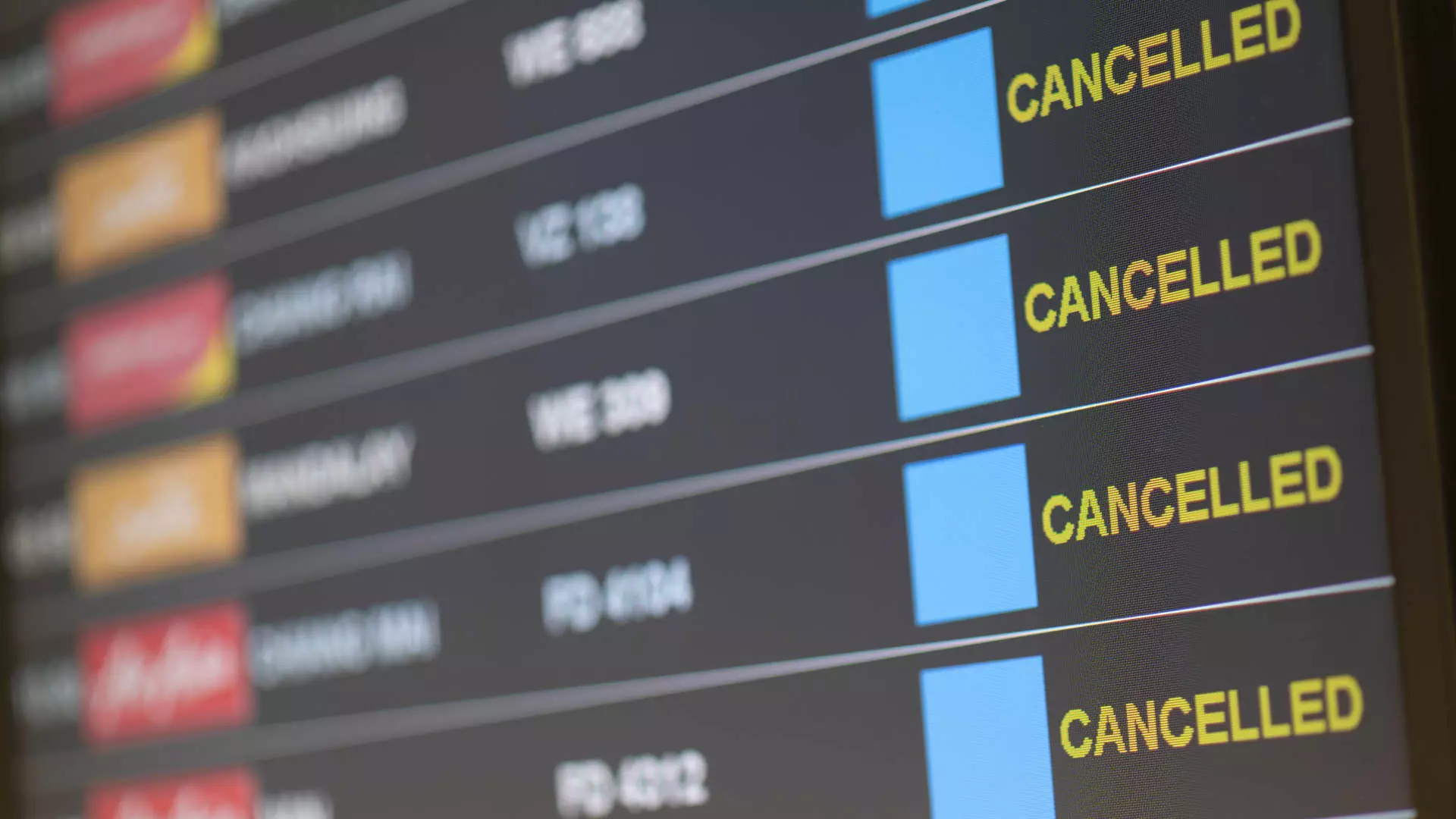Traveling during the summer can be an exciting time, but it also comes with its fair share of challenges. Flight delays and cancellations are all too common, leaving travelers frustrated and inconvenienced. Unfortunately, when it comes to getting reimbursed for these disruptions, the situation is far from ideal. According to experts, airlines in the U.S. are not legally obligated to compensate passengers for flight delays or cancellations. This lack of accountability can leave travelers feeling stranded and powerless, especially during peak travel seasons like the summer.
The period from mid-June to the end of August is considered the “high season” for flight disruptions. With more planes in the skies, frequent bad weather, and an increase in air traffic, the likelihood of delays and cancellations rises significantly. FAA data shows that bad weather accounts for a majority of flight-delay minutes year to date, with volume being another significant factor. The influx of passengers and flights during the summer months, as millions of Americans take vacations, only adds to the complexity of the situation.
While airlines are not required to provide compensation for flight disruptions, they do have a few obligations when it comes to canceling flights or making significant changes. The U.S. Department of Transportation mandates that carriers must refund the ticket price and fees if a flight is canceled or altered in a significant way. This refund policy applies even to nonrefundable tickets, with the DOT defining a “significant” change based on various factors. However, the lack of a concrete definition for this term leaves room for interpretation and potential disputes.
Starting Oct. 28, airlines will be required to promptly and automatically issue refunds to customers for significant flight delays, thanks to a new rule from the Biden administration. This rule also clarifies that a delay of three hours for domestic flights and six hours for international flights qualifies as a significant change warranting a refund. While this is a step in the right direction for passenger rights, the issue of compensation for flight disruptions remains a complex one, with varying policies across different airlines.
Passengers flying to and from Europe generally have more rights to compensation due to European Union laws. This means that travelers may be entitled to more substantial reimbursements for flight delays and cancellations, depending on the specific circumstances. International rules and regulations can provide additional layers of protection for passengers, ensuring that they are not left entirely at the mercy of airlines when disruptions occur.
While travelers may not have full control over flight delays and cancellations, there are some strategies they can employ to minimize the impact and better cope with these situations. Booking the first flight of the day, avoiding connecting flights, building in a buffer day at the destination, flying on less busy days, and packing smartly are just a few ways to mitigate the risks of disruptions. Multitasking while waiting for a resolution can also help expedite the process of rebooking or getting assistance from airline representatives.
Navigating the chaos of summer travel and flight disruptions requires a combination of preparation, awareness, and flexibility. While the lack of reimbursement for these disruptions can be frustrating, knowing your rights and taking proactive steps to minimize risks can make a significant difference in how you experience and manage travel challenges. By staying informed, planning ahead, and being adaptable, travelers can empower themselves to handle unexpected flight disruptions with confidence and resilience.

